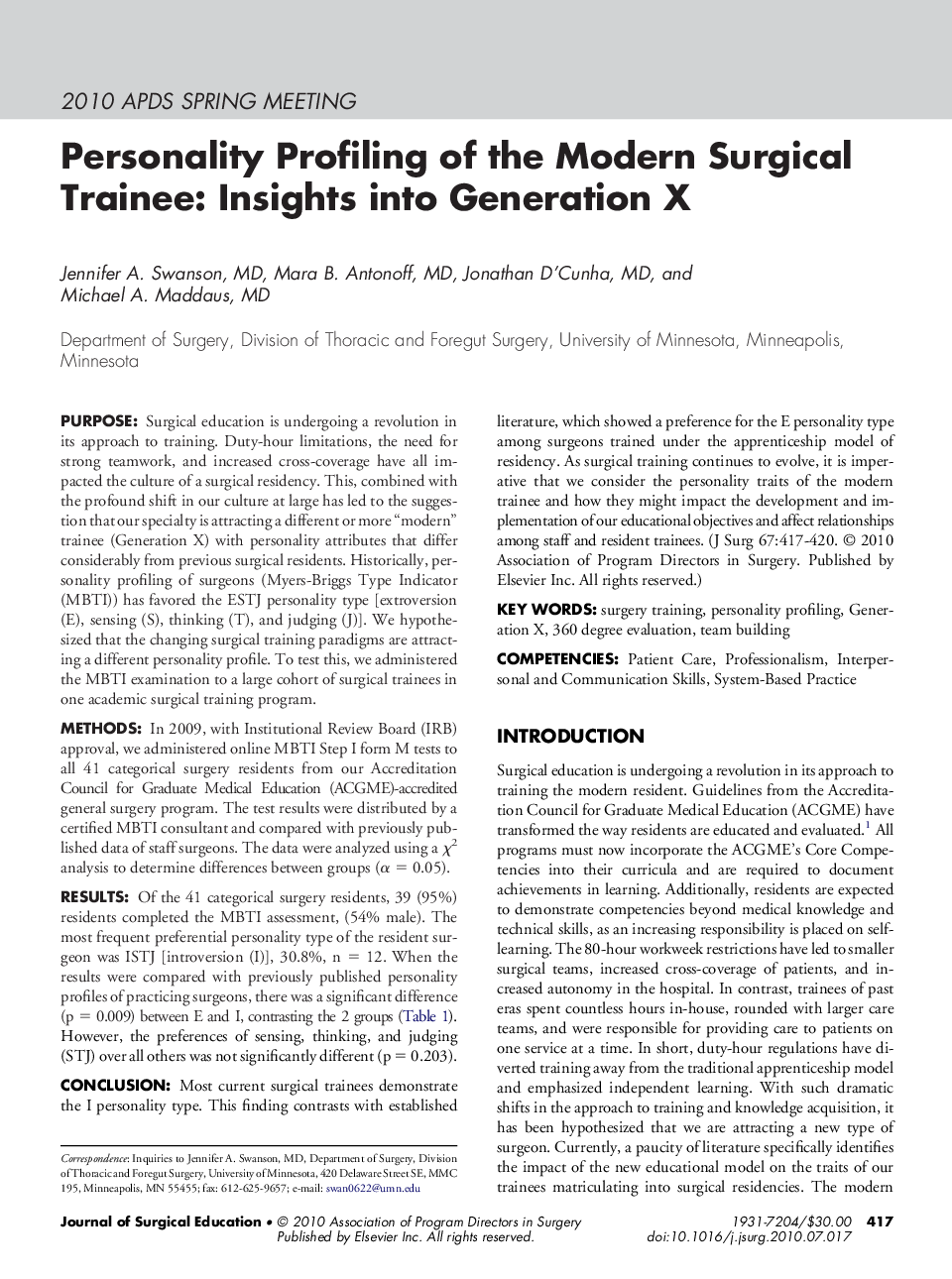| کد مقاله | کد نشریه | سال انتشار | مقاله انگلیسی | نسخه تمام متن |
|---|---|---|---|---|
| 4298435 | 1288354 | 2010 | 4 صفحه PDF | دانلود رایگان |

PurposeSurgical education is undergoing a revolution in its approach to training. Duty-hour limitations, the need for strong teamwork, and increased cross-coverage have all impacted the culture of a surgical residency. This, combined with the profound shift in our culture at large has led to the suggestion that our specialty is attracting a different or more “modern” trainee (Generation X) with personality attributes that differ considerably from previous surgical residents. Historically, personality profiling of surgeons (Myers-Briggs Type Indicator (MBTI)) has favored the ESTJ personality type [extroversion (E), sensing (S), thinking (T), and judging (J)]. We hypothesized that the changing surgical training paradigms are attracting a different personality profile. To test this, we administered the MBTI examination to a large cohort of surgical trainees in one academic surgical training program.MethodsIn 2009, with Institutional Review Board (IRB) approval, we administered online MBTI Step I form M tests to all 41 categorical surgery residents from our Accreditation Council for Graduate Medical Education (ACGME)-accredited general surgery program. The test results were distributed by a certified MBTI consultant and compared with previously published data of staff surgeons. The data were analyzed using a χ2 analysis to determine differences between groups (α = 0.05).ResultsOf the 41 categorical surgery residents, 39 (95%) residents completed the MBTI assessment, (54% male). The most frequent preferential personality type of the resident surgeon was ISTJ [introversion (I)], 30.8%, n = 12. When the results were compared with previously published personality profiles of practicing surgeons, there was a significant difference (p = 0.009) between E and I, contrasting the 2 groups (Table 1). However, the preferences of sensing, thinking, and judging (STJ) over all others was not significantly different (p = 0.203).ConclusionMost current surgical trainees demonstrate the I personality type. This finding contrasts with established literature, which showed a preference for the E personality type among surgeons trained under the apprenticeship model of residency. As surgical training continues to evolve, it is imperative that we consider the personality traits of the modern trainee and how they might impact the development and implementation of our educational objectives and affect relationships among staff and resident trainees.
Journal: Journal of Surgical Education - Volume 67, Issue 6, November–December 2010, Pages 417–420